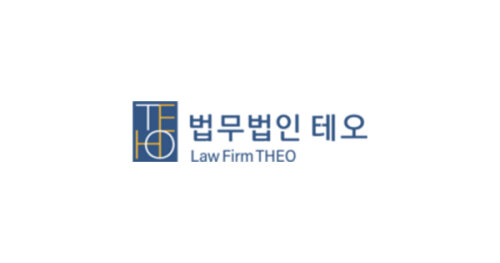Best Landlord & Tenant Lawyers in Yeonsu-gu
Share your needs with us, get contacted by law firms.
Free. Takes 2 min.
Free Guide to Hiring a Real Estate Lawyer
List of the best lawyers in Yeonsu-gu, South Korea
About Landlord & Tenant Law in Yeonsu-gu, South Korea
This guide gives a practical overview of landlord and tenant issues in Yeonsu-gu, a district in Incheon. Landlord-tenant relations in South Korea are governed mainly by national law with local offices and services in Yeonsu-gu and Incheon providing administration, mediation, and information. The most important national rules are the Civil Act and the Housing Lease Protection Act, which set out rights and obligations for leases, security deposits, eviction, and dispute resolution. In Yeonsu-gu many residents are locals and expatriates alike, and common tenancy arrangements include jeonse - a large lump-sum deposit lease - and wolse - monthly rent with a smaller deposit.
Why You May Need a Lawyer
Many landlord-tenant situations can be resolved by clear communication, but there are common circumstances when legal help is advisable:
- Security-deposit disputes where the landlord refuses to return all or part of a jeonse or deposit at lease end.
- Eviction or unlawful lockouts - whether you are a landlord needing to remove a non-paying tenant or a tenant facing a sudden eviction.
- Disagreements about rent increases, lease renewal terms, or illegal contract clauses.
- Serious repair and habitability issues where a landlord refuses to act and the tenant needs remedies.
- Lease registration, priority of claims, and issues arising when a landlord becomes insolvent or sells property.
- Complex sublease arrangements, commercial tenancy conflicts, or cases involving corporate landlords.
- Representation at mediation, conciliation, court hearings, or enforcement proceedings to secure or recover money or possession.
- Language or cultural barriers for foreign residents - a lawyer can translate documents, explain Korean legal concepts, and represent you formally.
Local Laws Overview
Key legal concepts and procedural points relevant in Yeonsu-gu include the following:
- Housing Lease Protection Act - Protects residential tenants by giving them priority to recover deposits if a landlord defaults, and establishes basic protections for lease terms and renewals.
- Jeonse and Wolse - Two common lease systems. Jeonse uses a large deposit returned at lease end. Wolse combines a deposit with monthly rent. The legal rights differ mainly in financial structure and in how deposit risk is managed.
- Lease Registration - Tenants can register their lease at the local real estate registry to establish priority against creditors and later purchasers. Registration improves protection of the tenant's deposit.
- Deposit Guarantee Insurance - The Korea Housing and Urban Guarantee Corporation and similar institutions offer deposit-guarantee products that protect tenants if landlords fail to return deposits. This is a practical risk-management tool in many cases.
- Rent Increases and Renewal - While parties may agree rent terms freely, sudden or abusive increases may be challenged. The Housing Lease Protection Act offers some protections on renewal and notice, particularly for long-term residential leases.
- Repair and Habitability - Under the Civil Act, landlords must keep the property in a state fit for use. Tenants may request repairs and, in some cases, withhold rent or claim damages for serious defects after following required procedures.
- Eviction Procedures - Landlords must follow legal process to evict. Illegal self-help evictions, changing locks, or removing tenant possessions without court order are prohibited.
- Dispute Resolution - Many landlord-tenant disputes are handled first by mediation or conciliation, often at local district offices, community mediation centers, or at the Incheon District Court before escalating to full litigation.
Frequently Asked Questions
How can I protect my deposit when renting in Yeonsu-gu?
Register the lease at the real estate registry to create priority against creditors, consider deposit-guarantee insurance offered by the Korea Housing and Urban Guarantee Corporation, keep a signed written contract in Korean and your language if needed, take dated photos of the property at move-in, and keep receipts for rent and repairs. If you are a tenant, prompt registration and insurance are the most effective practical steps.
What is the difference between jeonse and wolse?
Jeonse is a lease where the tenant pays a large lump-sum deposit with little or no monthly rent; the deposit is returned at the end of the lease. Wolse is a more conventional monthly-rent arrangement with a smaller deposit. Jeonse exposes the landlord to larger liability for returning the deposit, so tenants should take special precautions such as registration or deposit-guarantee insurance.
Can a landlord evict a tenant quickly for nonpayment of rent?
No. Landlords must follow legal procedures. Typical steps include sending formal notice, filing for eviction at the court, and obtaining a court decision or writ of execution. Illegal lockouts or forceful removals are prohibited. Tenants who cannot pay should communicate promptly and consider mediation or negotiation to avoid escalation.
What should I do if my landlord refuses to return the deposit at the end of the lease?
First, review the lease for agreed procedures. Gather evidence - the contract, photos, receipts, bank transfers, and communications. Attempt negotiation or mediation through Yeonsu-gu district office or community mediation. If that fails, file a civil claim in court to recover the deposit. If the landlord has financial troubles, registration and deposit-guarantee insurance will affect recovery options.
Am I allowed to withhold rent if the landlord does not fix major problems?
Withholding rent is a significant step and can produce legal risk. Under the Civil Act, tenants may have remedies if the landlord fails to repair habitability problems, but you should give formal notice and reasonable time to cure the defect. Consult a lawyer before withholding rent, or use mediation to document the landlord's refusal and secure a legal remedy.
Do I need a written lease, and what should it include?
Yes. A written lease is crucial. It should identify parties, the address, lease type (jeonse or wolse), deposit amount, rent and payment schedule, lease term, repair responsibilities, notice periods, procedures for termination, and signatures. If the lease is in Korean only and you do not read Korean, have it translated and reviewed by a lawyer or trusted bilingual professional.
How can a foreign resident get legal help in Yeonsu-gu?
Foreign residents can seek bilingual lawyers or interpreters, contact the Incheon immigration office for guidance, use Korea Legal Aid Corporation services that may offer support, or consult the Incheon Bar Association for referrals. Many lawyers in the Incheon area and Yeonsu-gu have experience with expatriate clients. Keep translations of key documents and a local contact person if possible.
What happens if the landlord sells the property while I am still leasing?
Generally your lease remains valid against a new owner if it was properly created, especially if registered. Registration protects tenants by creating priority over subsequent purchasers or creditors. If the new owner tries to terminate improperly, you can assert your contractual and statutory rights and seek enforcement through mediation or court.
Where can I go for mediation before going to court?
Yeonsu-gu Office and community mediation centers often provide dispute resolution services. The Incheon District Court also has conciliation and mediation procedures. Public mediation is usually faster and less expensive than litigation, and many lease disputes are resolved by agreement at mediation.
How much does it cost to hire a lawyer and are there free services?
Lawyer fees vary based on complexity, whether the matter goes to court, and the lawyer's experience. Some initial consultations may be free or low-cost. Korea Legal Aid Corporation and certain government programs offer free or subsidized legal aid for eligible low-income residents. The Incheon Bar Association and local legal aid offices can help identify financial-assistance options.
Additional Resources
These types of organizations and offices can be helpful when you need information or assistance:
- Yeonsu-gu Office - for local civil services, mediation programs, and public notices related to housing.
- Incheon City Government - for broader municipal housing policies and services.
- Incheon District Court - for filing civil claims, eviction proceedings, and court mediation.
- Korea Legal Aid Corporation - provides legal consultations and representation for eligible persons.
- Incheon Bar Association or local bar association - for lawyer referrals and professional standards.
- Korea Housing and Urban Guarantee Corporation - offers deposit-guarantee products to protect tenants.
- Ministry of Land, Infrastructure and Transport - the national regulator for housing policy and law guidance.
- Community mediation centers and Yeonsu-gu mediation services - for informal dispute resolution.
Next Steps
If you need legal assistance in Yeonsu-gu, follow these practical steps:
1. Collect and organize documents - lease contract, ID, bank transfer records, photos, maintenance requests, and any written communications.
2. Try to resolve the issue informally - contact the other party in writing, document requests, and set clear deadlines.
3. Use local mediation services - contact Yeonsu-gu Office or a community mediation center to attempt conciliation before court.
4. Seek legal consultation - get an initial consultation from a lawyer experienced in landlord-tenant law. Ask about fees, likely outcomes, and timeline.
5. Consider registration and insurance - if you are signing a new lease, register it at the registry and consider deposit-guarantee insurance to reduce risk.
6. If mediation fails, prepare for litigation or enforcement - your lawyer will help file claims, gather evidence, and represent you at court.
7. For foreign residents, seek bilingual counsel or a trusted translator to ensure you understand all documents and legal steps.
Taking early, documented steps and using available local services in Yeonsu-gu often prevents disputes from escalating and gives you the best chance to protect your rights and financial interests.
Lawzana helps you find the best lawyers and law firms in Yeonsu-gu through a curated and pre-screened list of qualified legal professionals. Our platform offers rankings and detailed profiles of attorneys and law firms, allowing you to compare based on practice areas, including Landlord & Tenant, experience, and client feedback.
Each profile includes a description of the firm's areas of practice, client reviews, team members and partners, year of establishment, spoken languages, office locations, contact information, social media presence, and any published articles or resources. Most firms on our platform speak English and are experienced in both local and international legal matters.
Get a quote from top-rated law firms in Yeonsu-gu, South Korea — quickly, securely, and without unnecessary hassle.
Disclaimer:
The information provided on this page is for general informational purposes only and does not constitute legal advice. While we strive to ensure the accuracy and relevance of the content, legal information may change over time, and interpretations of the law can vary. You should always consult with a qualified legal professional for advice specific to your situation.
We disclaim all liability for actions taken or not taken based on the content of this page. If you believe any information is incorrect or outdated, please contact us, and we will review and update it where appropriate.









